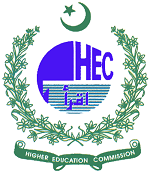Beyond budgeting and rolling forecast to improve management in the public schools
Abstract
Orientation: There has been an increasing concern that principals of public schools spend beyond the allocated budget or fail to use the funds provided. They seem to have difficulty in simply managing school funds, which has an impact on the quality of public school education.
Research purpose: The purpose of this paper is to examine the relationship between beyond budgeting and rolling forecast, as well as the improvement of management in the public schools.
Research design, approach, and method: The researchers employed a quantitative-type questionnaire which was administered to 100 public schools in the Cape Town Metropolitan area. The researchers conducted reliability, validity, discriminant validity, and structural modelling analysis using of the Statistical Package for the Social Sciences (SPSS) and the partial least squares-structural equation modelling approach (PLS-SEM) for data analysis.
Main findings: The results revealed a positive and significant relationship between the variables beyond budgeting and rolling forecast and the improvement of management in the public schools.
Practical and/or managerial implications: It is recommended that the Department of Education should provide training to the management of the public school; particularly in respect of flexible tools such as beyond budgeting and rolling forecast, to improve the schools’ financial performance.
Contribution & Value Added: The results of the paper could serve to educate representatives of public schools operating in the Cape Metropole on effective financial management. The South African government, particularly the Department of Education, could draw on the findings of this paper to develop effective strategies for training principals, heads of departments, and members of school governing bodies in the management of school finances.
Downloads
Copyright (c) 2022 Nelly Rose Msiza

This work is licensed under a Creative Commons Attribution 4.0 International License.
JFAR follows an open-access publishing policy and full text of all articles is available free, immediately upon acceptance. Articles are published and distributed under the terms of the Creative Commons Attribution 4.0 International License. Thus, work submitted to UMT Journals implies that it is original, unpublished work of the authors; neither published previously nor accepted/under consideration for publication elsewhere. On acceptance of a manuscript for publication, a corresponding author on the behalf of all co-authors of the manuscript will sign and submit a completed Author Consent, Copyright, and Declaration Form.







